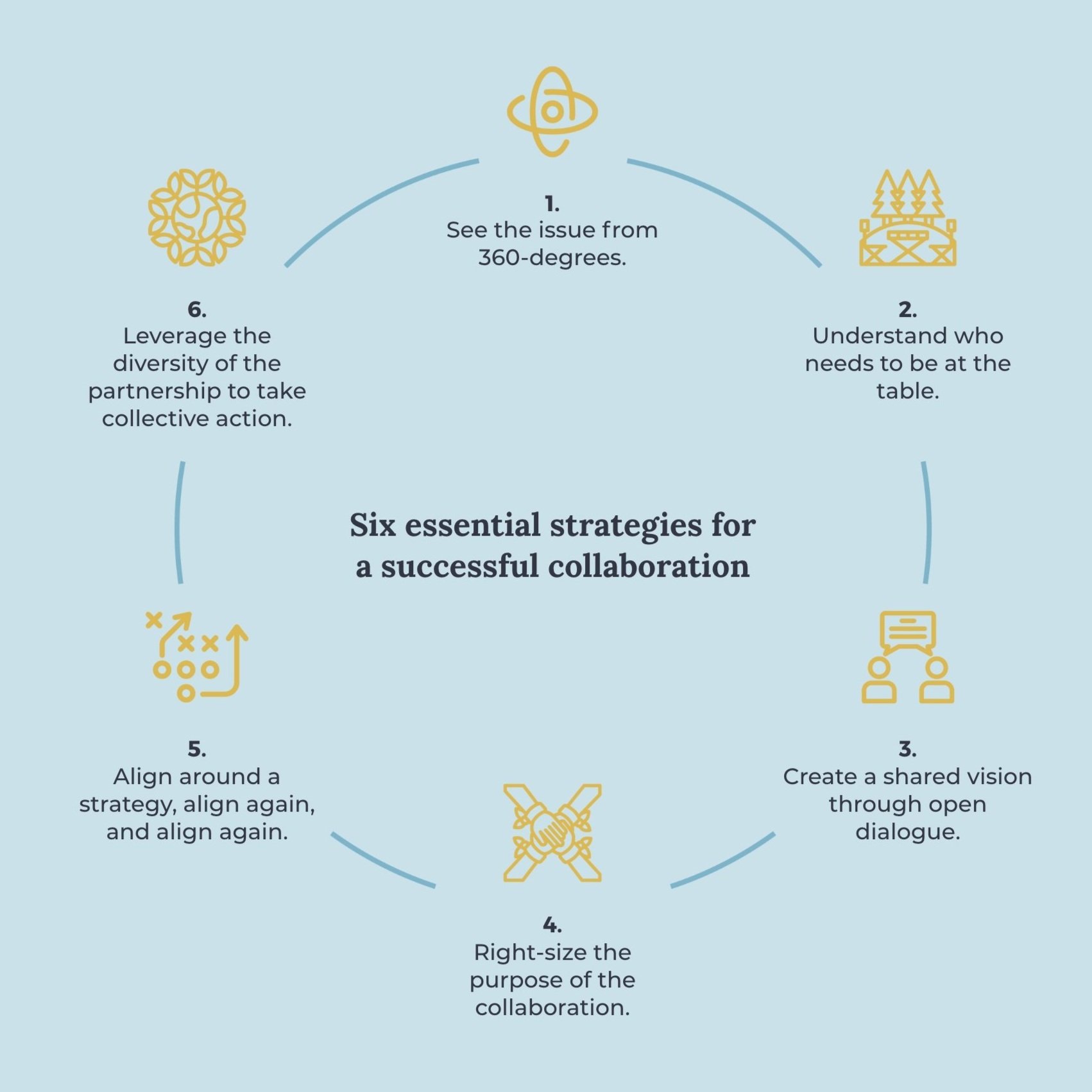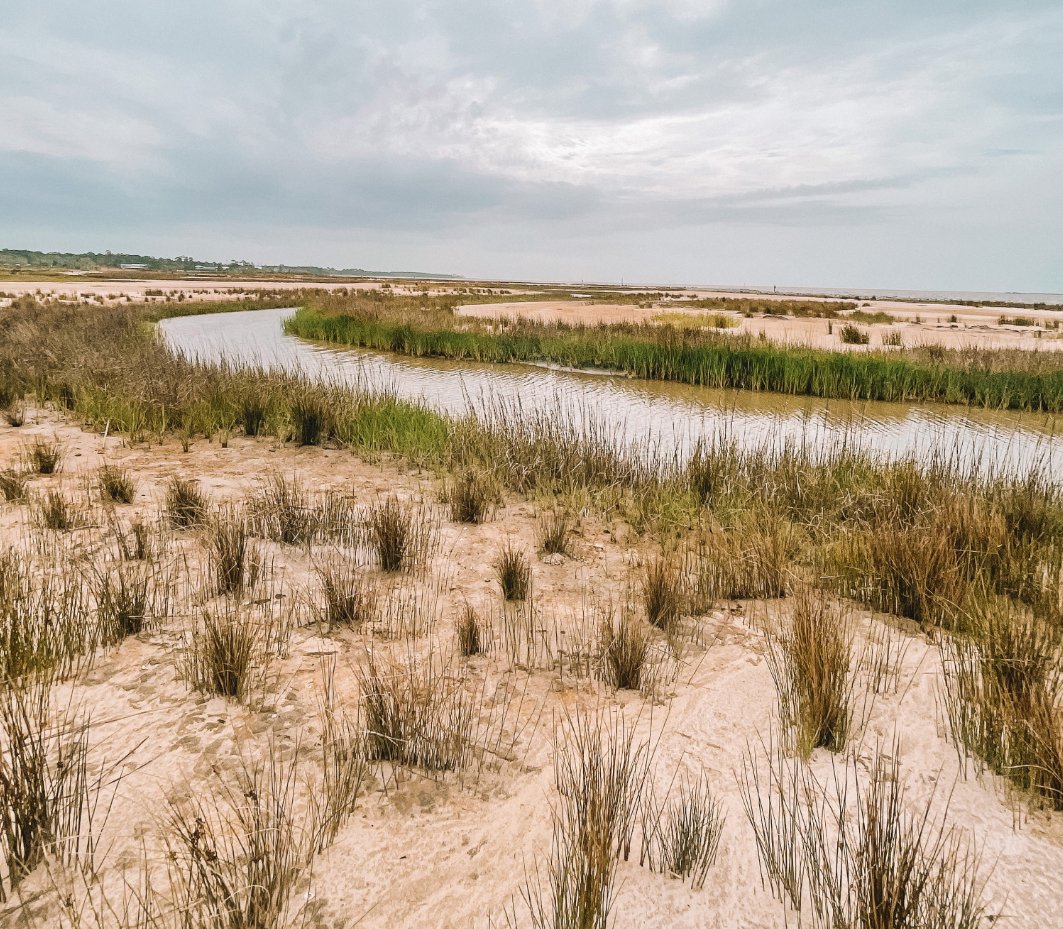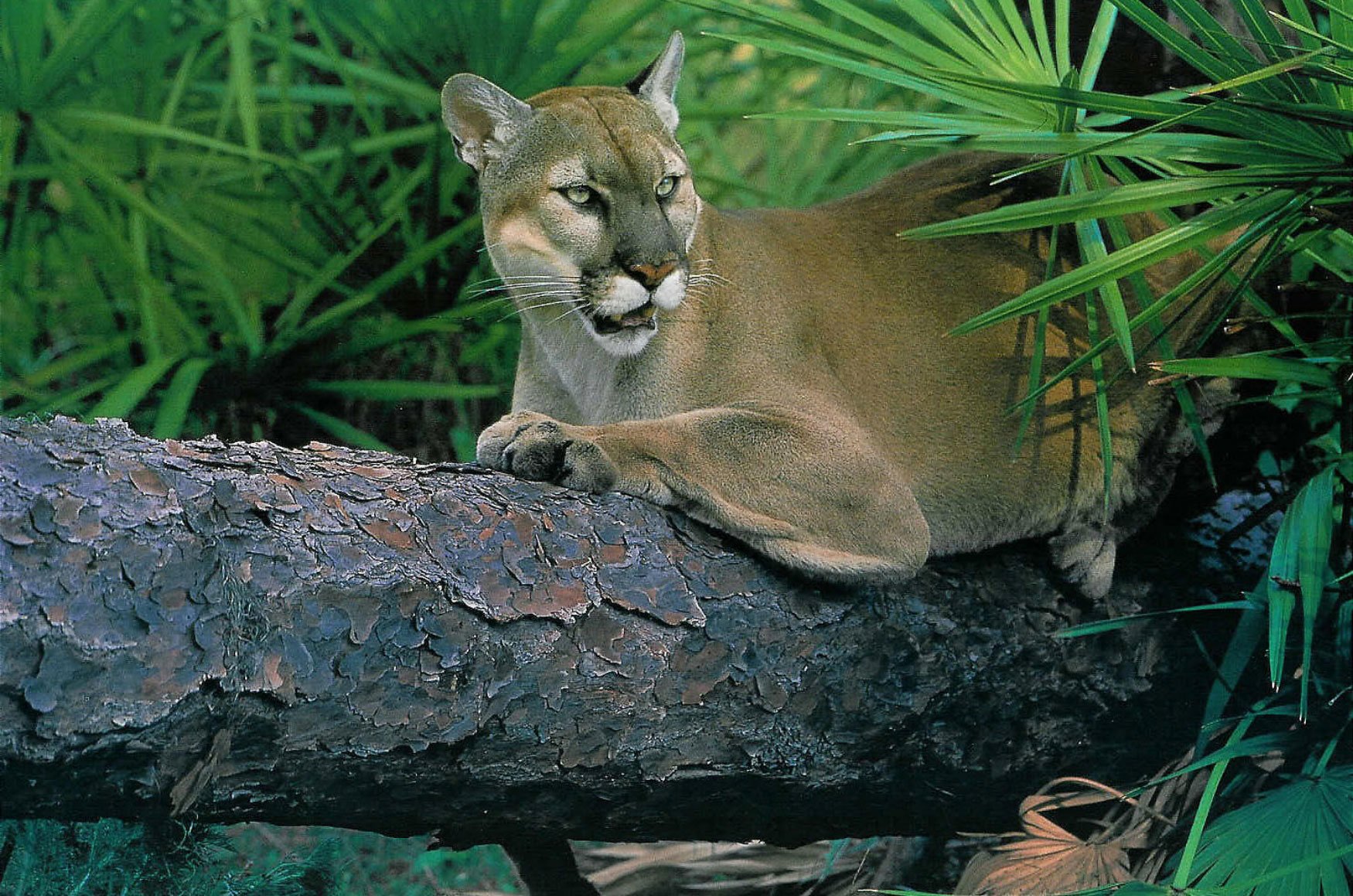Featured work
Real Clients. Real Impact.
Discover the possibilities of collaborative conservation.
The projects that I take on are focused on different conservation issues, their partnerships are in different stages of development, and can range from a small team within an organization to a collaborative with dozens of partners that span all sectors. But they all have one common goal: to work together to create change that is meaningful and lasting.
My approach is designed to achieve that goal and create successful collaborations. The process is circular, cyclical, and sometimes even requires taking a step back to make the next leap forward. No matter where you at in your collaboration, I work with you to:
See the issue from 360-degrees
Understand who needs to be at the table.
Create a shared vision through open dialogue.
Right-size the purpose of the collaboration.
Align around a strategy, align again, and again.
Leverage the diversity of the partnership to take collective action.
The case studies below show this approach in action.
FEATURED PROJECT: Keeping Forests
Challenge: Forest Conservation
Urbanization and land use change data shows that 23 million acres of Southern forests are facing immense pressure for development. That’s like losing all of the forests in Georgia or 19 Grand Canyons. Keeping Forests brings together a diverse coalition of scientists, forest advocates, conservation experts, and business leaders. The shared vision is to catalyze economic opportunities for forest stewards — who own 86% of the region’s 245 million acres — to keep their forests as forests.
FEATURED PROJECT: Southeast Conservation Adaptation Strategy (SECAS)
Unprecedented challenges facing natural and cultural resources, like urban growth and climate change, spurred a regional and conservation initiative that spans the Southeastern U.S. and Caribbean. SECAS brings together state and federal agencies, nonprofit organizations, private businesses, tribes, partnerships, and universities around a shared vision for the future: a connected network of lands and waters supporting thriving fish and wildlife populations and improved quality of life for people.
Challenge: Ecosystem Health
FEATURED PROJECT: Brown’s Mill Food Forest
Challenge: Environmental Justice
The Brown’s Mill Food Forest was born of a collaboration between the City of Atlanta, The Conservation Fund, Trees Atlanta, the USDA Forest Service, and environmental justice organizations Greening Youth Foundation (GYF) and the West Atlanta Watershed Alliance (WAWA) that support underserved communities. These partners came together to address a critical issue of food insecurity in an area where 1 in 3 residents live below the poverty line. The collaboration resulted in the nation’s largest free food forest and has served as a model that has been replicated across the country.
“The Brown’s Mill Food Forest simply wouldn’t have existed without Laura. She was able to bring us together and commit to taking action on this very important project.”
Mario Cambardella, Former Urban Agriculture Director, City of Atlanta
FEATURED PROJECT: Wildland Fire Leadership Training
Challenge: Wildland Fire Crisis
As the intensity, duration, and impact of wildfire season only continues to accelerate, there has been a need to support the first responders to these natural disasters. Beyond operational and technical expertise, there is a recognition that individual and collaborative leadership training heightens the ability of these individuals to effectively navigate daily, high-risk situations. This need has only been exacerbated in recent years, evidenced by an increased rate of suicide among these responders. The climate and wildfire crisis are inextricably linked. Since 2017, this has led to an expanded delivery leadership training that focuses on resilience, emotional intelligence, decision-making, and mental well-being of these essential workers.
FEATURED PROJECT: Conservation Without Conflict
Challenge: Wildlife Conservation
Conservation Without Conflict is a coalition of public and private partners with highly diverse goals, united in their commitment to conserving wildlife while keeping America’s working lands working. The coalition emphasizes innovation, voluntary participation, and collaboration. The goal is to develop approaches to conserve wildlife on rangelands, farms, and forests that are used to support the livelihoods of local families and communities. These lands are essential for wildlife, protect open space, and provide local people with a sense of place.
Curious what this could look like for you?
Want to take an even deeper dive?
Our Next Evolution: Transforming Collaborative Leadership to Shape Our Planet’s Future
This book teaches the mindsets, skills, and strategies that lead to effective collaboration in conservation and environmental work. I describe how our current approach to collaboration is outdated – to truly transform our world, we must also transform the way we lead.
The heart of collaborative leadership is our ability to develop the capacity for deep relationships – to ourselves, to one another, and to the natural world. Ultimately, Our Next Evolution is a rallying call to action, one that is built on four interconnected practices: Cultivating Presence, Creating Space, Leveraging Diversity, and Sustaining Dialogue.
When we put these practices into play and we evolve the ways we work together, new pathways emerge that lead us to ever-closer to our goals of a sustainable future for people and planet.
“Our Next Evolution offers clear strategies for drawing on our humanity and truly collaborating on the interconnected system vulnerabilities that are bringing us to the brink of a collapse of civilization. In short, it unveils the essential role of deep personal civility in building a just future for all.”
Paul Ehrlich | President, Center for Conservation Biology, Stanford University and author, The Population Bomb











